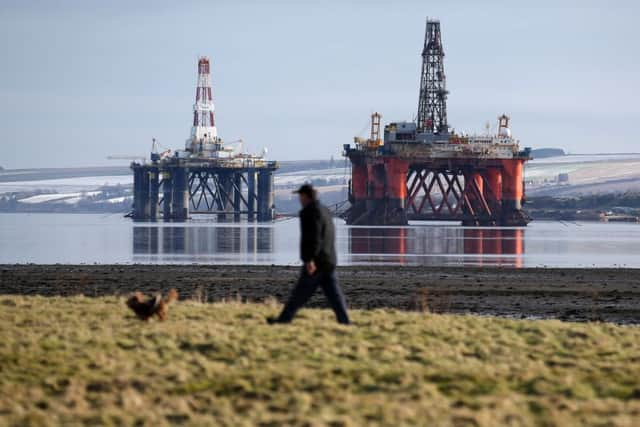North Sea oil wealth fund would be worth '˜over £500 billion'
The Institute for Public Policy Research (IPPR) estimated the value of such a fund if it had been founded around the same time as the one established by authorities in Oslo. The think tank criticised the approach of the UK Government of the time, noting North Sea oil raised £166 billion in taxes between 1981 and 1990.
The IPPR said that instead of establishing a fund, the UK chose to spend its tax windfall on reducing non-oil taxes.
Advertisement
Hide AdAdvertisement
Hide AdThe report draws comparisons with Norway, which invested revenues from 1990 in a fund now worth over $1 trillion and states “had the revenues from North Sea oil been invested in a (UK) sovereign wealth fund in the 1980s, as happened in Norway, such a fund would have been worth over £500 billion today”.


The authors concluded that while North Sea oil could no longer be used to capitalise a UK fund, the “mistakes of the 1980s” should not be repeated.
The finding was seized on by the SNP, which has long argued that North Sea assets have been squandered by Westminster.
“It’s no great secret that oil and gas revenues have been mismanaged by successive UK government’s over decades – treating Scotland oil industry as a cash cow through the good years, but barely lifting a finger to help during the recent downturn,” said Aberdeenshire East MSP Gillian Martin, who sits on the Scottish Parliament’s economy committee.


“To put it in context, the Treasury has siphoned off some £600,000 per head of population here in the North East of Scotland while we’ve seen precious little in return. This report points to a £500 billion missed opportunity, but it’s also a stark warning that the UK government must not make the same mistakes again.
“With a steady oil price, the oil and gas sector is once again set on an upward trajectory. The revenues from such a valuable national resource cannot be put towards covering the cost of Tory tax cuts for the very richest in our society – they should be invested wisely for future generations.”
But a HM Treasury spokeswoman said it was UK Government support that had helped the industry through a recent downturn in oil revenues.
“We have given the oil and gas industry £2.3 billion of support since 2015, to safeguard the future of this vital sector and its 300,000 jobs,” the spokeswoman said.
Advertisement
Hide AdAdvertisement
Hide Ad“What’s more, we have listened to the industry’s request to introduce a new transferable tax history to support new investment in older oil fields.”
The Labour Government led by Jim Callaghan reportedly considered establishing such a fund in the late 1970s, but the grim economic outlook of the time persuaded it not to.
Norway has since used its wealth fund to make a string of investments around the world, including several UK-based assets such as a 50 per cent stake in the Meadowhall shopping centre in Sheffield.
Professor Gavin McCrone, a chief economic adviser to successive Secretaries of State for Scotland throughout the 1970s, wrote in 2014 that the failure to establish a fund was “the mishandling of the greatest opportunity for the economy in the last half century.”
He said he was unaware of ministers collectively discussing the issue after the 1979 general election, but added: “That was when an oil fund should have been set up. The revenues started to become really large from 1980 onwards.”
